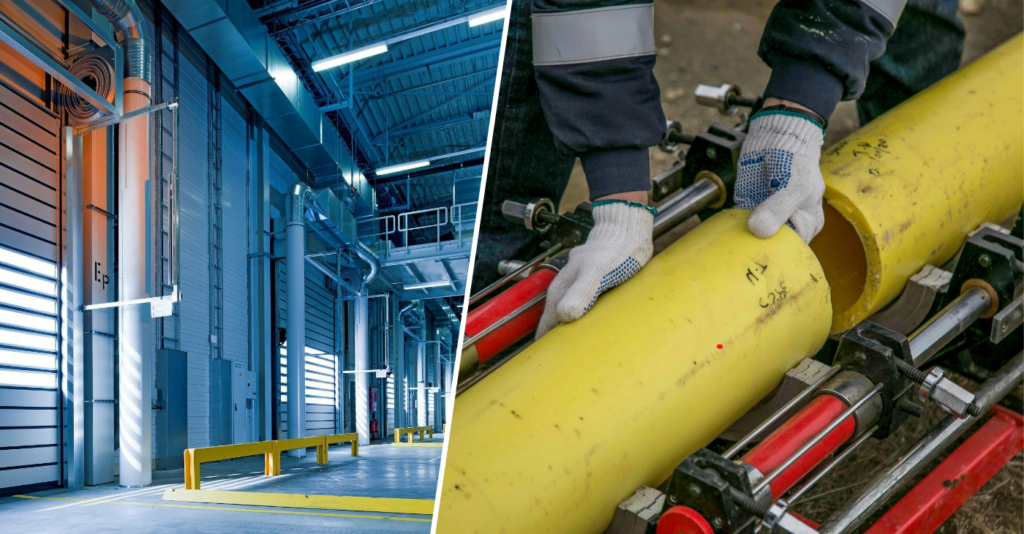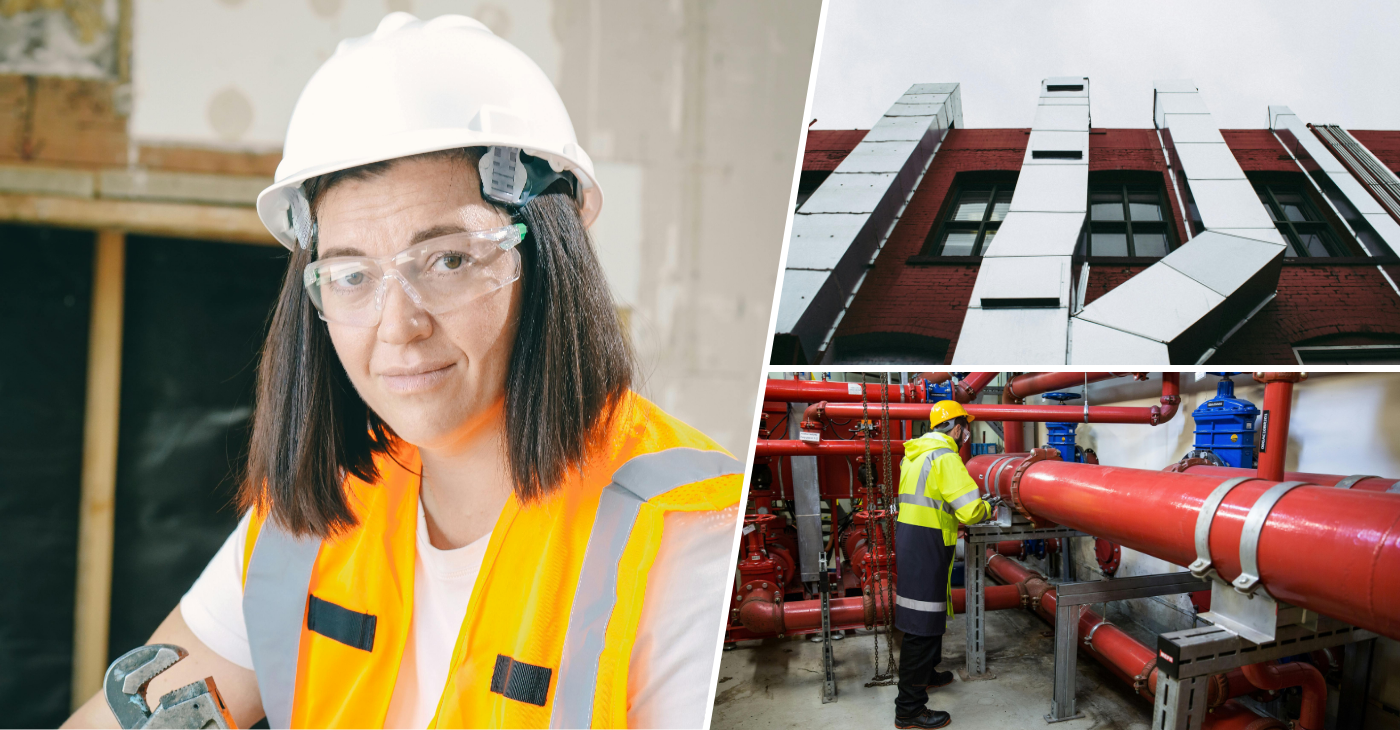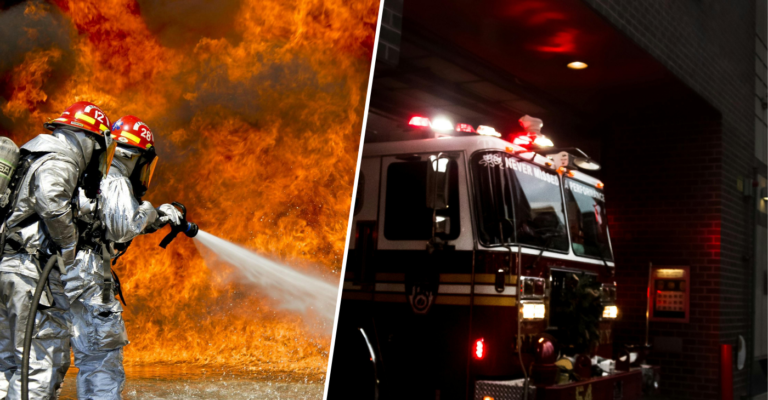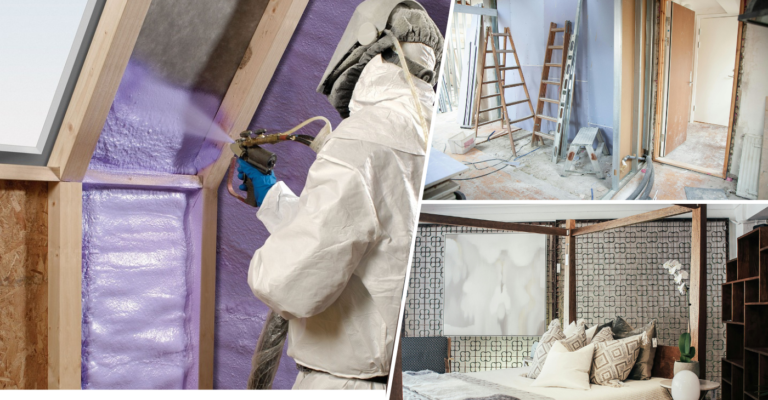Guide: Is HVAC a good career choice?
The HVAC (heating, ventilation, and air conditioning) industry has become an integral part of the construction world. Many people consider HVAC a good career due to its high earning potential. Whether you’re constructing residential homes or commercial high-rises, HVAC systems are essential for maintaining indoor air quality and comfort. As an HVAC technician, you’re responsible for the backbone of modern climate control. Let’s take a closer look at whether HVAC is a good career choice and what it entails for those interested in stepping into this industry.
What does an HVAC technician do?
HVAC technicians install, maintain, and repair systems that control temperature, humidity, and overall air quality. The consistent demand for heating and cooling systems makes HVAC a good career. Their work spans from small residential homes to large commercial buildings. They are responsible for installing complex systems like split units, ductwork, compressors, condensers, and thermostats. Beyond installation, HVAC pros handle diagnostic services, from troubleshooting electrical faults to repairing refrigerant leaks. In the commercial setting, HVAC techs also work with industrial-sized chillers and air handlers, which are essential for maintaining the building’s environmental controls.
Many professionals find HVAC a good career due to the variety of work environments. HVAC work extends beyond just installing equipment. You’ll also handle tasks like maintaining boilers, calibrating thermostats, ensuring efficient air filtration, and even cleaning ducts. These professionals ensure the systems operate efficiently while meeting modern energy standards.
What are the educational and training requirements for HVAC?
Most HVAC technicians begin their career through technical or vocational training. Courses generally focus on key subjects like electrical systems, thermodynamics, and fluid dynamics. The hands-on experience gained through apprenticeships is crucial. In most cases, you’ll spend time learning to install, repair, and maintain various HVAC systems under the guidance of an experienced technician. Apprenticeships last anywhere from 3 to 5 years, depending on the specialisation.
In addition to basic training, most states require technicians to hold certifications. For instance, EPA Section 608 certification is essential if you plan to work with refrigerants, a common task in HVAC systems. Further certifications like NATE (North American Technician Excellence) or specialised training in systems like commercial refrigeration can boost your career prospects.
Is there high demand for HVAC technicians?
Yes, the growing demand for energy-efficient systems makes HVAC a good career choice.
With new construction projects on the rise and increasing emphasis on energy efficiency, skilled HVAC professionals are needed more than ever. The demand is even higher in sectors like commercial construction, where large, complex climate control systems are installed and maintained. Additionally, retrofitting older buildings to meet modern energy standards ensures job stability for HVAC technicians.
As homes and businesses look for greener, more efficient systems, HVAC technicians who specialise in energy-efficient or renewable systems, such as geothermal units, solar-powered HVAC, or high-efficiency heat pumps, find themselves in even higher demand.

What are the earning potentials in the HVAC industry?
Starting out, an entry-level HVAC technician might earn between $28,000 and $40,000 per year. With experience, this can rise substantially. Those who specialise in areas like commercial HVAC systems, large-scale projects, or niche technologies like smart thermostats and building automation systems can command salaries upwards of $60,000 or even more.
For technicians who pursue management roles, such as becoming a foreman or project manager on large construction sites, earnings can exceed $80,000 per year. Owning an HVAC business also opens the potential for significant income, as there’s always demand for installation and repair services.
What skills are essential for an HVAC technician?
Being an HVAC technician requires a range of skills. First and foremost, a strong understanding of mechanical systems is essential. You’ll need to know how to install and maintain equipment such as compressors, heat pumps, and refrigeration systems. Electrical skills are also crucial, as HVAC systems involve a lot of wiring. You’ll need to read blueprints and technical diagrams, ensuring that installations align with building codes.
For problem-solvers, HVAC is a good career that challenges both mechanical and electrical skills. Whether you’re troubleshooting a malfunctioning furnace or diagnosing an issue in an air conditioning system, you’ll need to think on your feet. Good customer service skills are also important, especially for technicians working in residential settings. Explaining complex problems to homeowners in simple terms is part of the job.
Career advancement opportunities in HVAC
HVAC is a good career for individuals seeking growth and advancement opportunities. After gaining a few years of experience, you might specialise in areas like commercial HVAC, which involves larger, more complex systems. Alternatively, you could pursue advanced certifications in energy-efficient technologies, opening doors to work on sustainable projects or green construction.
Many HVAC technicians also transition into management roles. Becoming a supervisor or project manager involves overseeing teams of technicians and coordinating with other trades on the job site, ensuring that all systems are installed correctly and meet safety codes. Owning an HVAC business is also an option, especially for those who want to control their work schedule and grow a client base. The flexibility in scheduling makes HVAC a good career for work-life balance.
Challenges of working in HVAC
Like all trades, HVAC work has its challenges. The job is physically demanding, with technicians frequently working in tight, uncomfortable spaces like attics or crawlspaces. You’ll need to be able to lift heavy equipment, bend, crouch, and work in varying weather conditions, from scorching summers to freezing winters.
Additionally, HVAC technicians are often on-call, particularly for emergency repairs. Nights, weekends, and long hours can be part of the job, especially in the commercial sector where HVAC systems need to be running 24/7. While this can be demanding, overtime pay is often available to compensate for the extra hours worked.

What are the benefits of choosing a career in HVAC?
Choosing a career in HVAC offers many advantages. Below are the key benefits explained in short, clear sentences.
1. Strong job security
HVAC systems are essential in all buildings. This means HVAC technicians will always be needed. The job cannot be outsourced, providing long-term security.
2. High earning potential
HVAC technicians start with a good salary. As they gain experience, their pay increases. Specialized roles and certifications can lead to higher earnings. Many HVAC professionals start their own businesses, further boosting income.
3. Career advancement opportunities
There is plenty of room to grow in HVAC. You can move from residential systems to complex commercial ones. Specializing in refrigeration or energy-efficient systems opens up more career paths. Management roles and business ownership are also common.
4. Variety of work environments
HVAC technicians work in many different places. This includes homes, businesses, and large industrial sites. Each job is different, which keeps the work interesting.
5. Independence and flexibility
Many HVAC technicians work as independent contractors. Others start their own businesses. This provides flexibility in work schedules. Even those who work for companies often enjoy flexible hours.
6. Problem-solving and technical skills
HVAC requires solving complex problems. Technicians use mechanical, electrical, and diagnostic skills daily. This makes the job engaging and mentally stimulating.
7. Growing demand in green energy
Energy efficiency is becoming more important. HVAC professionals are key in installing energy-saving systems like geothermal units. Green energy technology offers new job opportunities in this field.
8. Short training period
You don’t need years of school to start in HVAC. Most training programs take 6 months to 2 years. This allows you to enter the workforce quickly.
9. High job satisfaction
Many HVAC professionals enjoy their work. They get to fix real problems and help people. Seeing the results of their efforts gives them satisfaction.
10. Entrepreneurial opportunities
Many HVAC technicians start their own companies. This provides the freedom to be your own boss. Running an HVAC business can be very profitable.
Is HVAC a sustainable career in the green energy sector?
Job stability and independence make HVAC a good career for aspiring entrepreneurs. As the construction industry shifts towards sustainability, HVAC professionals are at the forefront of green technology. HVAC systems today focus on energy efficiency and reduced environmental impact. From installing geothermal systems to integrating smart thermostats with automated building management systems, HVAC techs who focus on these sustainable solutions are highly valued.
This shift not only enhances the environmental impact of HVAC work but also positions technicians as key players in the green building movement. With governments and industries pushing for reduced energy consumption and cleaner air, HVAC techs with expertise in eco-friendly systems are in high demand.
How does job satisfaction compare to other trades?
HVAC offers a high level of job satisfaction. The work is varied, you could be installing ductwork one day and servicing a rooftop unit the next. Each project offers its own set of challenges, so HVAC technicians rarely deal with the monotony found in other roles. Additionally, knowing that your work directly impacts people’s comfort and well-being provides a strong sense of accomplishment.
Furthermore, the HVAC industry is constantly evolving with new technologies, meaning there’s always something new to learn. Whether it’s working with smart systems, improving energy efficiency, or integrating renewable energy, there’s never a dull moment in this career.
Conclusion
Overall, HVAC is a great career option for those interested in the construction field. It doesn’t require years of schooling. The work is varied and always in demand. With the rise of smart home technologies, HVAC is a good career to stay ahead in modern building practices. There are many opportunities to grow and specialise. HVAC also provides job stability and the potential for self-employment. It’s a fulfilling and rewarding career path with plenty of room for advancement. Read more







